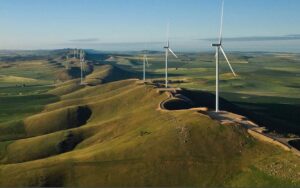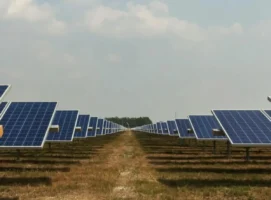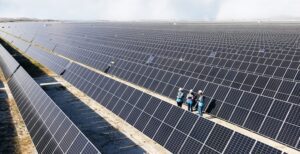Climate campaigners have expressed outrage as oil giants post more huge profits from the second quarter of this year, and pocket the gains, while the Northern Hemisphere swelters under a vicious heatwave and destructive wildfires continue to burn through Europe.
Though the world’s biggest fossil fuel producers have all recorded much smaller profits than last year, when they cashed in on the energy crisis, critics say billions are still being made at the expense of the environment and the public.
BP recorded profits of US$2.6 billion (AU$3.9 billion) in the second quarter of this year, a significant fall from the US$8.5 billion it recorded in Q2 last year, at the peak of the global oil crisis.
But rather than ploughing the gains into more renewable ventures, BP has chosen to increase its shareholder dividends by 10% to US$2.3 billion, and return an additional US$1.5 billion to investors via share buybacks in the next three months.
BP’s chief executive Bernard Looney said the move reflected the company’s confidence in its future profits – which will be buoyed by two new oil and gas projects. He sees no decline in oil and gas demand anytime soon.
“We’re delivering our strategy at pace – we’ve started up two major oil and gas projects to help keep energy flowing today and we’re accelerating our transformation through our five transition growth engines,” Looney said. “And we’re delivering for shareholders growing our dividend and announcing a further share buyback.”
BP’s announcement comes after Shell last week reported second-quarter profits of more than US$5 billion – down from the staggering US$11.5 billion the company recorded in the same period last year.
Shell also announced it would spend $3 billion on buybacks over the next quarter, and another $2.5 billion after its third quarter results.
Greenpeace staged a protest outside Shell’s London offices after that announcement, with activists hoisting a placard featuring the company’s logo and the phrase “Our profit, your loss”.
In May, activists accused the company of a “profiteering bonanza” after it reported record first-quarter profits of more than US$9.6 billion.
The first half of 2023 has seen the material impacts of the climate crisis writ large, with the planet recording its hottest ever day in July.
Despite this, and despite the IEA’s clear warning back in 2021 that no new oil and gas projects could be started if the world is to limit warming to 1.5C, global oil giants still have major new projects in the pipeline – including 114 in Australia alone.
Meanwhile in June, Shell chief executive Wael Sawan told investors that the company would drop its target to cut oil production by about 1-2 per cent each year to 2030.
The company justified that move because it said it had met the target reductions through asset sales, which saw its production drop from 1.9 million barrels of oil equivalent per day in 2019 to 1.5 million in 2022.
Pranesh Narayanan, a research fellow at UK thinktank the Institute for Public Policy Research (IPPR), said the recent announcements showed oil companies were putting shareholders ahead of the planet and the public.
“BP is putting shareholders above society and the climate, stating in their annual accounts that ‘a resilient dividend is BP’s first priority’,” Narayanan said.
“Despite profits falling, the company is still making billions off the back of higher oil prices. But instead of investing those profits in the green transition, BP is transferring it straight to their shareholders through share buyback schemes.”
In October last year the IPPR and Common Wealth published a report arguing that share buybacks amount to a direct cash transfer away from households struggling to pay bills.
Share buybacks, which allow a company to return cash to its shareholders at a lower tax bracket, were illegal in the UK and the US until 1981 and 1982 respectively.








